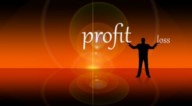Note:
Following Mr. Ge Ba’s previous article “Ge Ba’s wonderful views on price and stop loss”, he put forward a wonderful palindrome view on my previous article “The Misunderstanding of Price and Value”. Yesterday, thanks to his willingness to sacrifice rest and spend a lot of time on holidays, based on recent volatility in growth stocks, provided his deeper view on “value” and “price”, and analyzed Graham and Buffett’s intention. The following is the original version, shared with readers. Andy would like to thank Mr. Ge Ba on behalf of the readers.
Related articles
- This article was from Mr. Ge Ba’s feedback my blog post “Misunderstanding of price and value“.
- Mr. Ge Ba’s first feedback is here “Value and stop loss, Mr. Ge Ba’s view“
Source
There is a company that lost 60% of its stock price from 1973 to 1975, 40% in October 1987, 50% from 1998 to 2000, and 51% from 2008 to 2009. If you say that 1973, 1987, and 2008 were all due to stock market crashes, of course all company stocks fall, not counting them. But this time in 1998, when the “prices” of other companies’ stocks skyrocketed, it was the only company stock price cut the share price in half. Do you want to stop loss for this company?
If Ge Ba tells you that the CAGR of the company’s 50-year shareholder return is 21%, with this information, you probably won’t stop losses. Yes, that company is Berkshire Hathaway. Do you think this is an extreme example? If you have read the story of “100 Baggers”, you know that there are not a few such companies.
What are your beliefs when you buy into a company? How much do you know about this company? Has the reason you insisted on buying changed? What is the “intrinsic value” you calculated (not the “external price” calculated by the price comparison method!)? What is your margin of safety? When the stock price has dropped by 30%, you feel that “the market may know more than you” and panic?
I have worked hard to train myself to analyze the company’s ability (this, I believe I can learn some from Andy): If a company, I can’t estimate its intrinsic value, it means I don’t know enough about it, I don’t buy it It (in the “too hard” basket) until one day I understand it. So the reason I hope I don’t stop loss is this.

Ge Ba wants to add the sentence “Don’t stop loss” (I’m afraid it will confuse everyone if you don’t make it clear). Ge Ba does not use “X%” to stop loss, because such a stop loss is left to “others” to help you decide the stop loss, because the “stock price” is determined by other people in the market, especially everyone knows that Mr. Market is irrational , and give it to help you stop losses, which is very strange.
Ge Ba uses qualitative factors such as “whether the reason for the original purchase still exists”, “whether the competitive advantage is still there”, “whether the growth space is sustainable”, and “whether the management level is correct” to sell stock investments. Such selling is up to you to decide, if the original reason is no longer there, no matter whether the current investment is losing money or making money, Ge Ba will decisively do stop loss.
It is better to trust yourself than others.